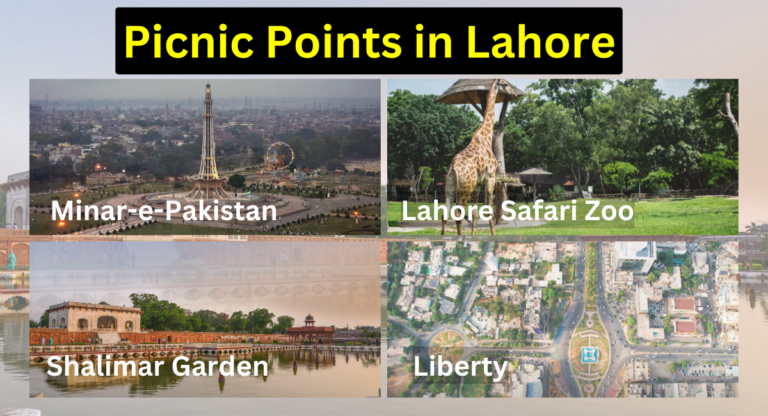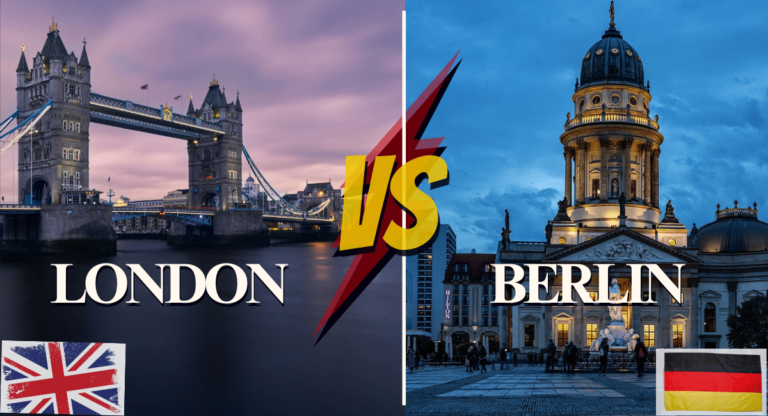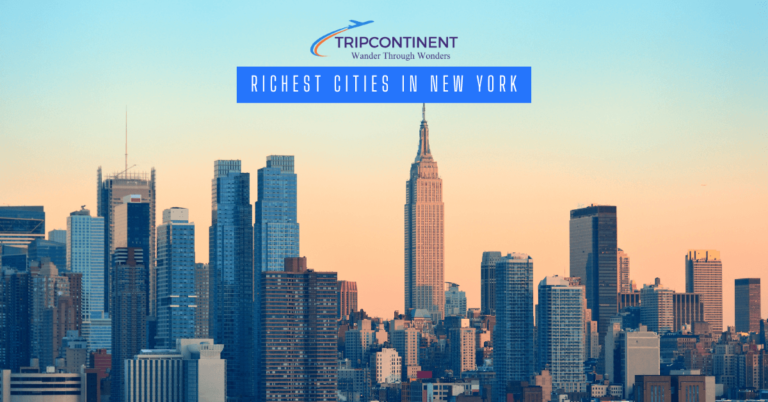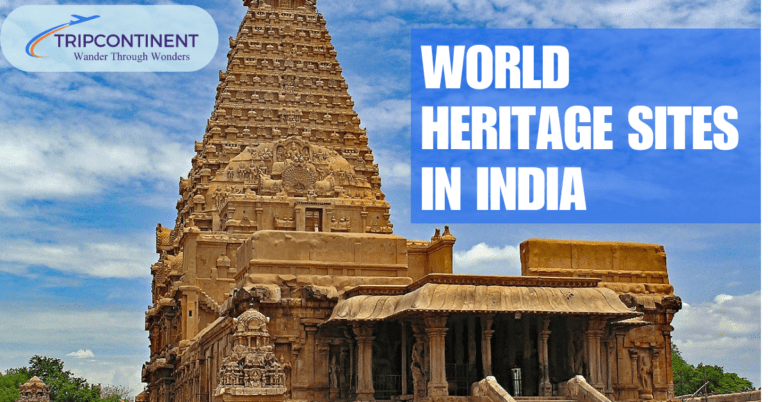10 Most Peaceful Countries in the World in 2024
In a world often marked by turbulence and unrest, certain nations rise above as beacons of peace and serenity. These most peaceful countries in the world have meticulously cultivated environments of stability, safety, and respect for human dignity. They demonstrate that through thoughtful governance, social cohesion, and a commitment to justice, peace is attainable. By examining the elements that make these nations so tranquil, we can uncover lessons that could pave the way for a more harmonious global future.
So, stay with us as we uncover the ten most peaceful countries in 2024, exploring what sets them apart and what we can learn from their exemplary models of peace and prosperity.
A list of the 10 Most Peaceful Countries in the World As Per the Global Peace Index
Here is a list of the most peaceful countries in 2024 as per the Global Peace Index.
- Iceland
- Ireland
- Austria
- New Zealand
- Singapore
- Switzerland
- Portugal
- Denmark
- Slovenia
- Malaysia
1. Iceland
Iceland, a Nordic island nation nestled between the North Atlantic and Arctic Oceans, stands as a paragon of peace and prosperity. With a population on the brink of surpassing 400,000, Iceland is a country where urban living prevails, as 99% of its people reside in cities. The capital, Reykjavík, along with its neighboring municipalities, hosts over 70% of the population, fostering a vibrant and close-knit community.
Iceland’s high standard of living is a testament to its developed status, with a GDP per capita reaching $80,000 in 2023. The economy thrives on diverse sectors, such as tourism and aluminum smelting, bolstered by a commitment to renewable energy through geothermal and hydropower sources. This focus on sustainability not only supports the economy but also ensures environmental stewardship.
The Icelandic government is dedicated to enhancing the well-being of its citizens. Initiatives like Welfare Watch, established in 2009, have been crucial in addressing the social and economic repercussions of the 2008 financial crisis. Progressive social policies, including extensive parental leave, affordable childcare, and strict equal pay laws, underscore Iceland’s commitment to social equity. These measures have propelled Iceland to high rankings in the United Nations Human Development Index, reflecting a society that prioritizes life expectancy, education, and a superior standard of living.
2. Ireland
Ireland is ranked as the second most peaceful and prosperous country globally, and it has a population exceeding 5.7 million as of 2024. The nation has seen significant growth in both population and economic development in recent years. This diverse population includes immigrants from Poland, the United Kingdom, India, Romania, and Lithuania, contributing to a rich cultural mosaic.
A major factor in Ireland’s peaceful status is its robust economic performance. The country’s GDP has steadily increased, driven by a thriving services sector, especially in high-tech, life sciences, and financial services. Ireland’s open and business-friendly policies have attracted substantial foreign direct investment, bolstering economic growth and stability.
Ireland has also taken proactive steps to address environmental challenges, promoting renewable energy sources and sustainability initiatives. These efforts not only enhance environmental sustainability but also foster a sense of social responsibility and civic engagement among citizens.
Furthermore, Ireland’s comprehensive social security system plays a pivotal role in maintaining its peaceful status. By providing robust support for health, education, and welfare, the government ensures a high standard of living for its citizens, reducing social inequalities and enhancing overall well-being. This combination of economic vitality, environmental stewardship, and social security underpins Ireland’s reputation as a peaceful and prosperous nation.
3. Austria
Austria is the world’s third most tranquil country, with a population of approximately 9 million people. According to the Global Peace Index, Austria consistently ranks among the world’s most serene nations. In 2023, Austria’s GDP per capita was 37,460 euros, reflecting its well-developed social market economy and high standard of living. The country excels in income, employment, and housing, supported by diverse key industries such as machinery, chemicals, electronics, automobiles, and luxury goods.
Austria is committed to supporting peace and stability both domestically and internationally. As a member of the European Union, Austria has adeptly managed relations with rival political blocs and embraced new forms of regional cooperation, enhancing its role as a stabilizing force in Europe.
The country’s high ranking on the Global Peace Index can be due to low crime rates, limited terrorist activity, and stable political and economic institutions. Austria’s beautiful natural environment, with half of its land covered in forests and easy access to the Alps and Adriatic Sea, adds to its attraction. This unique combination of economic prosperity, security, and natural beauty makes Austria a truly peaceful place to live. The country’s dedication to maintaining these elements ensures its ongoing status as a haven of tranquility and well-being.
You might also like: Safest Cities in Europe
4. New Zealand
New Zealand, a small island country in the southwest Pacific Ocean, is widely recognized as the world’s fourth most peaceful nation. With a population exceeding 5.3 million as of 2024, New Zealand boasts a diverse and vibrant society. The majority of its residents are of European and Asian descent, and the nation continues to attract immigrants from across the globe, enriching its cultural landscape.
The service sector drives New Zealand’s economy, contributing approximately two-thirds of its GDP. The country is also a leading exporter of agricultural products, including dairy, meat, and wine. In 2023, New Zealand’s GDP per capita was estimated at around $47,000, reflecting its economic vitality.
New Zealand’s peaceful and thriving society is built on its dedication to sustainable development and environmental conservation. The nation has been at the forefront of efforts to combat climate change, demonstrating a strong dedication to preserving its natural environment.
Additionally, New Zealand excels in promoting social and economic equality. The country maintains a robust social safety net and prioritizes high-quality education and healthcare for all citizens. It consistently ranks among the top nations for low corruption levels, high personal freedom, and a strong rule of law.
Despite its small size, New Zealand exerts significant influence on the global stage. It holds a prominent position in international organizations such as the United Nations and the Commonwealth of Nations. It is committed to peacekeeping and conflict resolution, contributing troops to numerous UN peacekeeping missions worldwide.
5. Singapore
In recent years, Singapore has emerged as one of the world’s most peaceful and prosperous countries, with a population approaching 6 million. Central to Singapore’s success is its unwavering commitment to economic development and social stability. Singapore has a GDP per capita of more than $88,000, making it the fifth most tranquil and one of the wealthiest countries in the world. This prosperity stems from sound economic policies, a highly educated workforce, and a strategic location that has transformed it into a hub for international trade and commerce.
The government of Singapore has invested heavily in social cohesion and community development. Initiatives to improve the quality of life for all citizens include affordable housing, healthcare, education, and job training programs. The city-state is renowned for its cleanliness and well-designed public spaces, contributing to a livable and environmentally friendly urban environment. Furthermore, investments in renewable energy, particularly solar power, underscore Singapore’s commitment to sustainability.
Singapore’s dedication to innovation and technology has positioned it as a global leader in fields such as fintech, cybersecurity, and artificial intelligence, attracting top tech companies worldwide. On the global stage, Singapore has played a significant role as a mediator and facilitator in international disputes and has contributed to peacekeeping efforts. Its commitment to diplomacy and conflict resolution has solidified its reputation as a symbol of stability and peace.
Also read: Most Educated Countries In The World
6. Switzerland
Switzerland, known for its magnificent landscapes and neutrality, is one of the world’s most peaceful and successful countries. With a population of about 8.8 million, Switzerland is celebrated for its high quality of life and strong economy. The country’s GDP per capita reached approximately $89,000 in 2023, reflecting its economic strength and high standard of living.
Switzerland’s economy is diverse and robust, with significant contributions from finance, pharmaceuticals, machinery, and high-tech industries. The country’s well-established banking sector and multinational corporations bolster its global financial position. Additionally, Switzerland’s commitment to innovation and quality has made it a leader in sectors like biotechnology and precision engineering.
Known for its neutrality, Switzerland maintains a strong tradition of political stability and neutrality, avoiding involvement in international conflicts. This neutrality, combined with a decentralized political system and a strong rule of law, contributes to its high ranking in peace and stability indices.
Switzerland is also recognized for its environmental stewardship and sustainable practices. The country invests in renewable energy sources and has a comprehensive waste management system. Its picturesque landscapes, including the Alps and numerous lakes, are preserved through stringent environmental regulations.
On the international stage, Switzerland plays an active role in humanitarian efforts and diplomacy. It hosts various international organizations, such as the Red Cross and the World Health Organization, further underscoring its commitment to global peace and cooperation.
7. Portugal
Portugal, a small nation on the Iberian Peninsula, ranks 7th on the 2024 Global Peace Index, highlighting its status as one of the most peaceful countries in the world. With a population of just over 10 million, Portugal is celebrated for its warm hospitality, delectable cuisine, and breathtaking natural landscapes, from the Atlantic coastline to the rolling hills of the Douro Valley.
Portugal’s economy has improved significantly in recent years. By 2023, its GDP per capita surpassed $27,000. The country has successfully diversified its economy, transitioning from traditional agriculture and fishing to a more service-oriented model. Key sectors now include tourism, information technology, and renewable energy, all contributing to robust economic growth.
Portugal’s commitment to social and political reforms is evident in its progressive policies, which emphasize human rights, gender equality, and environmental protection. Notable initiatives include the legalization of same-sex marriage and the decriminalization of drug use, which foster a more inclusive and tolerant society.
The country also boasts one of the best education systems in Europe, with significant investments in quality education and a strong focus on STEM (Science, Technology, Engineering, and Mathematics) subjects. These efforts have resulted in a highly skilled and educated workforce, positioning Portugal for continued innovation and prosperity.
8. Denmark
Denmark is renowned worldwide as a haven of peace and prosperity. With a population of around 5.9 million in 2024, Denmark boasts a high standard of living, a robust economy, and an unwavering commitment to social welfare and environmental sustainability. The country’s extensive social safety net ensures that all citizens benefit from free public education, universal healthcare, and a range of other social services, fostering an inclusive and supportive society.
Economically, Denmark thrives on a foundation of significant economic freedom, innovation, and a well-developed welfare state. In 2023, the GDP per capita was approximately $60,000, reflecting a diverse economy driven by industries such as manufacturing, pharmaceuticals, renewable energy, and a flourishing service sector.
Denmark’s focus on sustainability is a key strength, with the nation setting ambitious goals to reduce greenhouse gas emissions and enhance the use of renewable energy sources like wind power. This commitment not only advances environmental protection but also spurs economic growth, establishing Denmark as a leader in clean technology.
Denmark’s success is also based on investments in education and social welfare. Free access to high-quality public schools and universities cultivates a highly skilled and innovative workforce. This focus on human capital development is essential for Denmark’s sustained economic prosperity and its reputation as a forward-thinking, peaceful nation.
Also explore: Most Beautiful Cities in the World
9. Slovenia
Slovenia is ranked ninth in the 2024 Global Peace Index, confirming its position as one of the world’s safest and most stable countries. With a population of just over 2 million people, more than 80% of whom identify as Slovenian, the country boasts a high standard of living and a GDP per capita of around $32,000 in 2023. Slovenia’s economy thrives on manufacturing, tourism, and high-tech industries, contributing to its economic vitality.
Slovenia has made impressive advancements in renewable energy, with over 20% of its electricity generated from renewable sources, primarily hydropower and wind. The country has also invested in sustainable public transportation, featuring a well-developed network of trains, buses, and cycling infrastructure to reduce its carbon footprint.
A cornerstone of Slovenia’s peacefulness is its dedication to international cooperation and diplomacy. The country actively participates in peacekeeping and conflict resolution efforts within the European Union and on the global stage. Slovenia has also been instrumental in promoting regional stability in the Western Balkans, notably through its involvement in the Brdo-Brijuni Process, which fosters dialogue and cooperation among the region’s leaders.
These efforts, combined with a strong emphasis on sustainability and a high quality of life, make Slovenia a model of peace and stability in the international community.
10. Malaysia
Malaysia, a vibrant Southeast Asian nation, stands out for its diverse culture, economic growth, and relative peacefulness. With a population of over 32 million, Malaysia is a melting pot of ethnicities, including Malays, Chinese, Indians, and various indigenous groups, contributing to its rich cultural tapestry.
In recent years, Malaysia has made significant economic strides, with a GDP per capita of approximately $12,000 in 2023. The country’s economy is diverse, driven by sectors such as manufacturing, oil and gas, palm oil, and tourism. The government has also been actively promoting digital economy initiatives and attracting foreign investments, further bolstering its economic position.
Malaysia’s commitment to social stability is reflected in its various policies aimed at fostering national unity and economic equity. The New Economic Policy, for instance, has been instrumental in reducing poverty and addressing income disparities among different ethnic groups. Additionally, Malaysia invests heavily in education and healthcare, ensuring a high quality of life for its citizens.
Environmental sustainability is another focus, with efforts to preserve its rich biodiversity, including rainforests and marine ecosystems. The country is working towards increasing the use of renewable energy sources and implementing green technologies.
On the international stage, Malaysia is known for its diplomatic approach. It plays an active role in regional organizations like ASEAN. Its commitment to peace and cooperation enhances its reputation as a stable and progressive nation in Southeast Asia.
Ranking of the 10 Most Peaceful Countries Globally According to the Global Peace Index
| Country | Global Peace Index Rankings |
| Iceland | 1.11 |
| Ireland | 1.3 |
| Austria | 1.31 |
| New Zealand | 1.32 |
| Singapore | 1.34 |
| Switzerland | 1.35 |
| Portugal | 1.37 |
| Denmark | 1.38 |
| Slovenia | 1.4 |
| Malaysia | 1.43 |
Final Words
In conclusion, Iceland, Ireland, Austria, New Zealand, Singapore, Switzerland, Portugal, Denmark, Slovenia, and Malaysia, are the most peaceful countries in the world, exemplifying the harmonious blend of economic prosperity, social stability, and environmental stewardship.
Each nation has cultivated a unique set of strengths, from innovative economies and progressive social policies to active roles in global diplomacy and environmental protection. Their shared commitment to peace and well-being provides valuable lessons for other countries striving for similar harmony. As global citizens, we can draw inspiration from these models to foster a more peaceful, prosperous, and sustainable world for future generations.
FAQs
Which Country Is Ranked as the Happiest in the World?
The World Happiness Report ranks Finland as the happiest country in the world.
Which Country Is Recognized as the Most Peaceful in the World?
Iceland is recognized as the most peaceful country in the world. It has held this position since 2008, although its peace score experienced a slight decrease of 1.55% due to a minor increase in violent demonstrations.
What Are the Safest Countries to Move to?
Iceland, Denmark, Ireland, New Zealand, Austria, Singapore, Portugal, and Slovenia are among the top eight safest and most peaceful countries for relocating with your family.
Which Countries Are the Cheapest to Live in?
Pakistan, Nepal, and Bhutan are regarded as the world’s cheapest places to live.
Is India a Peaceful Country?
No, India is not ranked among the most peaceful countries. While it has areas of stability and cultural richness, it faces challenges such as regional conflicts, political tensions, and occasional social unrest that impact its overall peace score.
What Is the Most Peaceful Country in Asia?
According to the Global Peace Index, Singapore is the safest country to visit in Asia, followed by Japan and Malaysia. These nations are known for their low levels of violence, crime, and conflict, alongside high levels of stability and security. Visitors can also expect warm, welcoming locals who make you feel right at home.

I’m Sophia Jones, an adventurer at heart from New York City, USA. I live for travel and exploration, always eager to discover new places, meet fascinating people, and try out diverse cuisines. Over the past few years, I’ve traveled to numerous countries, immersing myself in different cultures and creating unforgettable memories.






